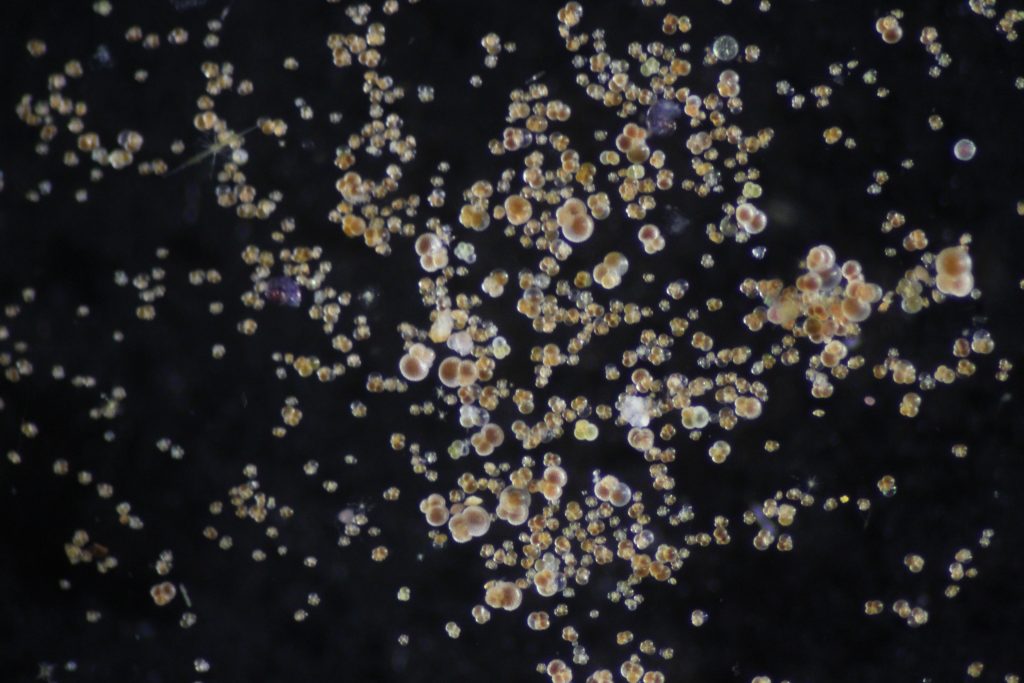
The marine microplankton is an integral part of the oceanic food web and plays a crucial role in the marine carbon cycle and carbonate sequestration. Yet, the ability of the plankton to sustain environmental change is not well understood thus far. This is largely due to a lack of knowledge about evolutionary processes within a planktonic community that lives in an oceanic setting largely void of physical barriers which could prevent gene flow. In this work group, we are trying to understand the drivers of plankton evolution across the phyto- and zooplankton, quantify the adaptability and evolvability of the marine microplankton, and predict the impact of future climate and environmental change on its biomass, population dynamics, and diversity. Armed with such knowledge, the impact of plankton evolution in the future and its coupling with the oceanic resource cycle can be predicted.
For our work, we employ quantitative biometric analyses. We use high resolution images taken with a Keyence digital microscope and a JEOL scanning electron microscope to extract morphological data from fossil remains and conduct morphometric analyses. The morphological data are complemented by stable isotope analyses from a ThermoFisher DeltaPlus XL mass spectrometer located in our partner laboratory in Lausanne (Switzerland).
More information on our lab is available here.